For those with kidney disease, in addition to treatment methods, diet is also a very important factor. So, what should people with kidney disease eat and what should they avoid to control the symptoms? The following article will provide useful information about the daily diet for people with kidney disease.
1. Day 1 Menu
Nutritional needs: 1600 kcal
Protein intake: 60g
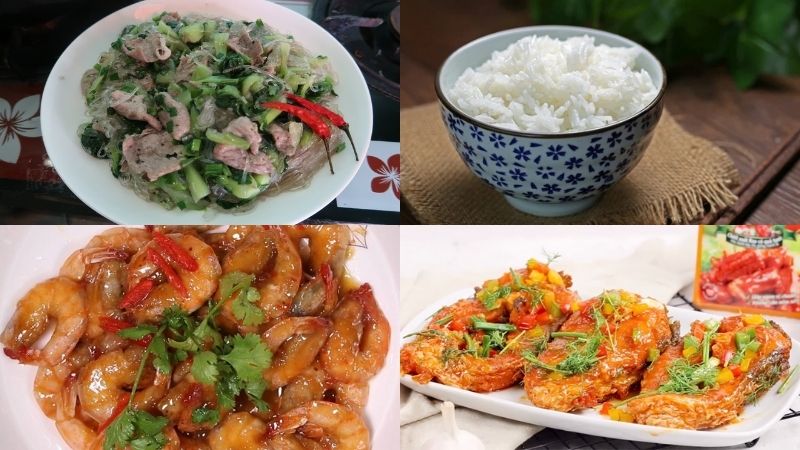 Day 1 Menu
Day 1 Menu
Breakfast: Glass noodle stir-fried with lean meat
- Glass noodle: 60g
- Lean meat: 30g (3 small, thin slices)
- Vegetables: 100g
- Oil: 10ml (2 tablespoons)
Lunch: White rice
- White rice: 100g (2 half bowls)
- Boiled pork: 30g (3 thin slices)
- Tomato: 30g
- Boiled vegetables: 100g (1/2 bowl)
- Cooking oil: 3ml (1/2 tablespoon)
Afternoon snack (3 pm):
- Boiled sweet potato: 100g
Dinner: White rice
- White rice: 100g (2 half bowls)
- Carp in tomato sauce: 80g
- Tofu: 20g
- Boiled vegetables: 100g
- Cooking oil: 7ml (1.5 tablespoons)
2. Day 2 Menu
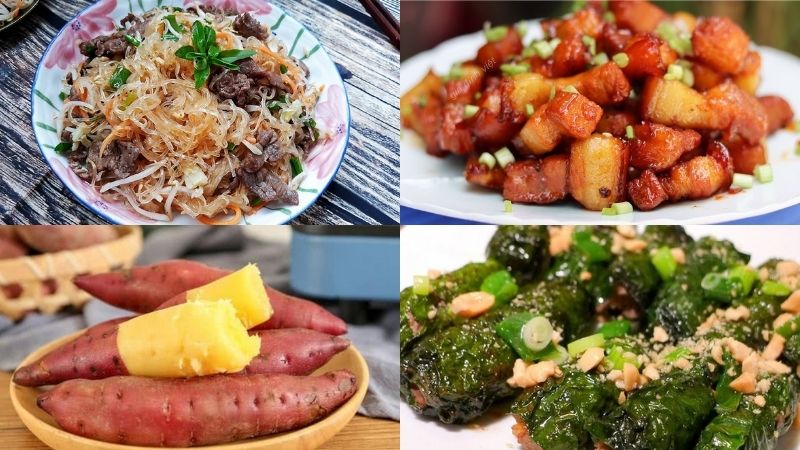 Day 2 Menu
Day 2 Menu
Nutritional needs: 1800 kcal
Protein intake: 60g
Breakfast:
- Glass noodle: 60g
- Lean meat: 35g (5-6 small, thin slices)
- Sweet potato leaves: 100g
- Cooking oil: 10ml (2 tablespoons)
Lunch: White rice
- White rice: 120g
- Boiled pork: 60g (6-7 thin slices)
- Spring roll: 1 piece (20g meat)
- Boiled radish: 150g
- Cooking oil: 5ml
- Sweet grapes: 70g (7 medium-sized grapes)
Afternoon snack (3 pm): Boiled sweet potato with sugar
- Boiled sweet potato: 150g
- Sugar: 10g (1 teaspoon, 10ml teaspoon)
Dinner: White rice
- White rice: 120g
- Braised meat: 50g (3-4 small, medium slices)
- Meatball in tomato sauce: 1 piece (20g meat)
- Boiled vegetables: 100g
- Cooking oil: 7ml
3. Day 3 Menu
Nutritional needs: 1800 kcal
Protein intake: 70g
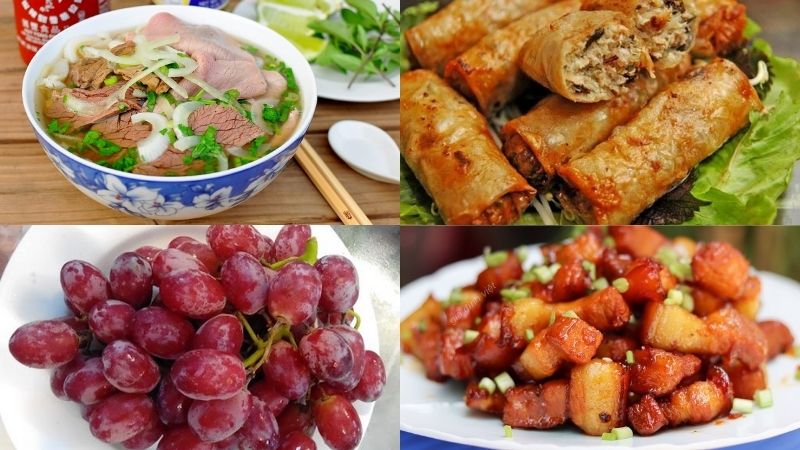 Day 3 Menu
Day 3 Menu
Breakfast:
- Rice noodle: 180g
- Beef: 35g (5-6 small, thin slices)
- Sweet potato leaves: 100g
- Cooking oil: 10ml
Lunch: White rice
- White rice: 120g
- Boiled pork: 60g (6-7 thin slices)
- Fried meatball: 1 piece (20g meat)
- Boiled radish: 150g
- Cooking oil: 5ml
Afternoon snack (3 pm):
- Sweet grapes: 70g (7 medium-sized grapes)
Dinner: White rice
- White rice: 120g
- Braised meat: 50g (3-4 small, medium slices)
- Meat wrapped in lolot leaf: 1 piece (20g meat)
- Boiled green squash: 100g
- Cooking oil: 10ml
4. Day 4 Menu
Nutritional needs: 1800 kcal
Protein intake: 80-85g
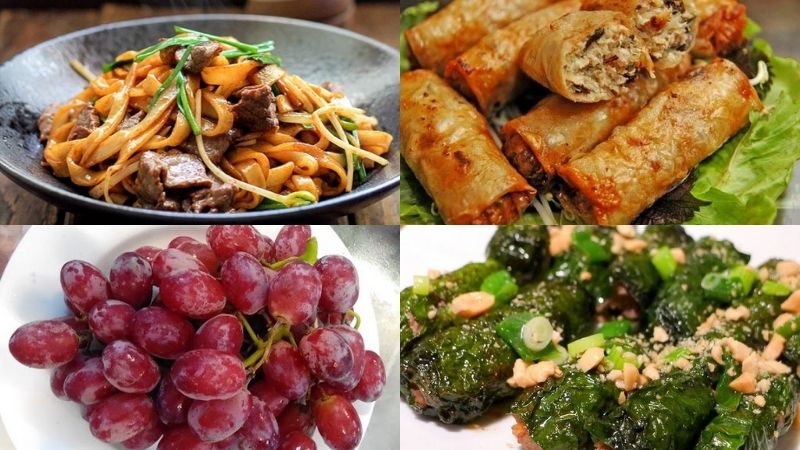 Day 4 Menu
Day 4 Menu
Breakfast:
- Rice noodle: 180g
- Beef: 50g (10-11 small, thin slices)
- Tomato, cucumber
Lunch: White rice
- White rice: 120g
- Boiled pork: 60g (6-7 thin slices)
- Fried meatball: 2 pieces (40g meat)
- Boiled radish: 150g
- Cooking oil: 7ml
Afternoon snack (3 pm):
- Sweet grapes: 70g (7 medium-sized grapes)
Dinner: White rice
- White rice: 120g
- Braised meat: 60g (4-5 small, medium slices)
- Meat wrapped in lolot leaf: 2 pieces (40g meat)
- Boiled green squash: 150g
- Cooking oil: 10ml
5. Day 5 Menu
Nutritional needs: 1900-2000 kcal
Protein intake: 70g
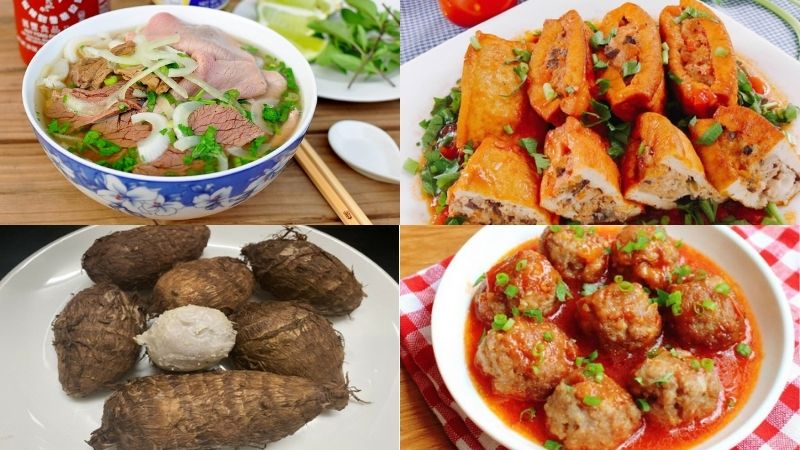 Day 5 Menu
Day 5 Menu
Breakfast: Beef Pho
- Rice noodle: 180g
- Beef: 40g (8-9 small, thin slices)
- Scallion, herbs
Lunch: White rice
- White rice: 160g
- Lean meat: 15g, 1/2 block of tofu (30g)
- Fried anchovy: 50g (3 medium-sized anchovies)
- Boiled vegetables: 100g
- Cooking oil: 15ml
- Orange: 100g
Afternoon snack (3 pm): Boiled taro with sugar
- Boiled taro: 120g (2 small tubers)
- Sugar: 10g
Dinner: White rice
- White rice: 120g
- Braised meat: 65g (5-6 thin slices)
- Meatball in tomato sauce: 1 piece (30g)
- Boiled vegetables: 150g
- Cooking oil: 10ml
6. Day 6 Menu
Nutritional needs: 1900-2000 kcal
Protein intake: 80g
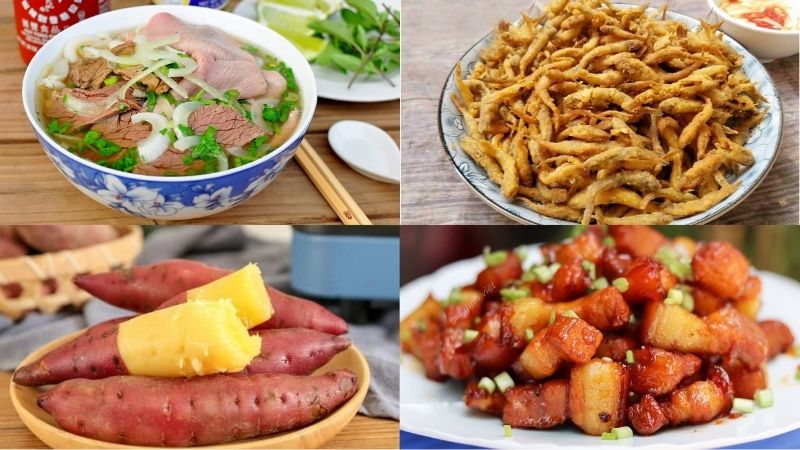 Day 6 Menu
Day 6 Menu
Breakfast: Beef Pho
- Rice noodle: 180g
- Beef: 50g (10-11 small, thin slices)
- Scallion, herbs
Lunch: White rice
- White rice: 160g
- Tofu stuffed with meat: Lean meat: 30g, tofu 1 block (60g)
- Fried gobies: 60g (3 medium-sized gobies)
- Boiled vegetables: 100g
- Cooking oil: 15ml
- Dragon fruit: 100g
Afternoon snack (3 pm):
- Boiled sweet potato: 100g (1 small tuber)
Dinner: White rice
- White rice: 120g
- Braised meat: 60g (5-6 thin slices)
- Meatball in tomato sauce: 1 piece (30g)
- Boiled vegetables: 100g
- Cooking oil: 10ml
7. Day 7 Menu
Nutritional needs: 1900-2000 kcal
Protein intake: 90g
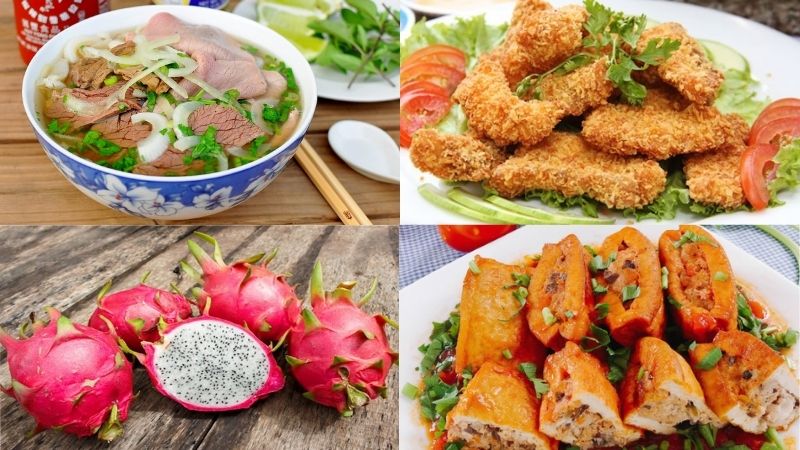 Day 7 Menu
Day 7 Menu
Breakfast: Beef Pho
- Rice noodle: 200g
- Beef: 50g (10-11 small, thin slices)
- Scallion, herbs
Lunch: White rice
- White rice: 160g
- Fried carp: 100g
- Meatball in tomato sauce: 4 pieces (80g meat)
- Boiled vegetables: 100g
- Cooking oil: 15ml
Afternoon snack (3 pm):
- Dragon fruit: 100g
Dinner: White rice
- White rice: 120g
- Boiled meat: 50g (4-5 thin slices)
- Tofu stuffed with meat: Lean meat 30g, tofu 1 block (60g)
- Boiled green squash: 100g
- Cooking oil: 5ml
8. Dietary considerations for people with kidney disease
Reduce protein intake
People with kidney disease should reduce their consumption of protein-rich foods such as meat, poultry, seafood, eggs, and dairy products. For patients weighing between 50 and 55 kg, it is recommended to consume no more than 50g of meat and fish, and about 250ml of milk per day. In addition, patients should avoid organ meats, grilled, fried, and oily foods.
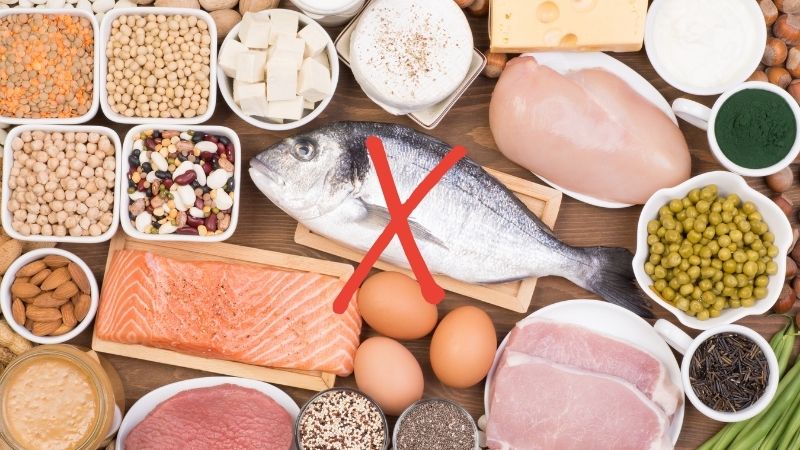 Limit animal protein
Limit animal protein
<
































